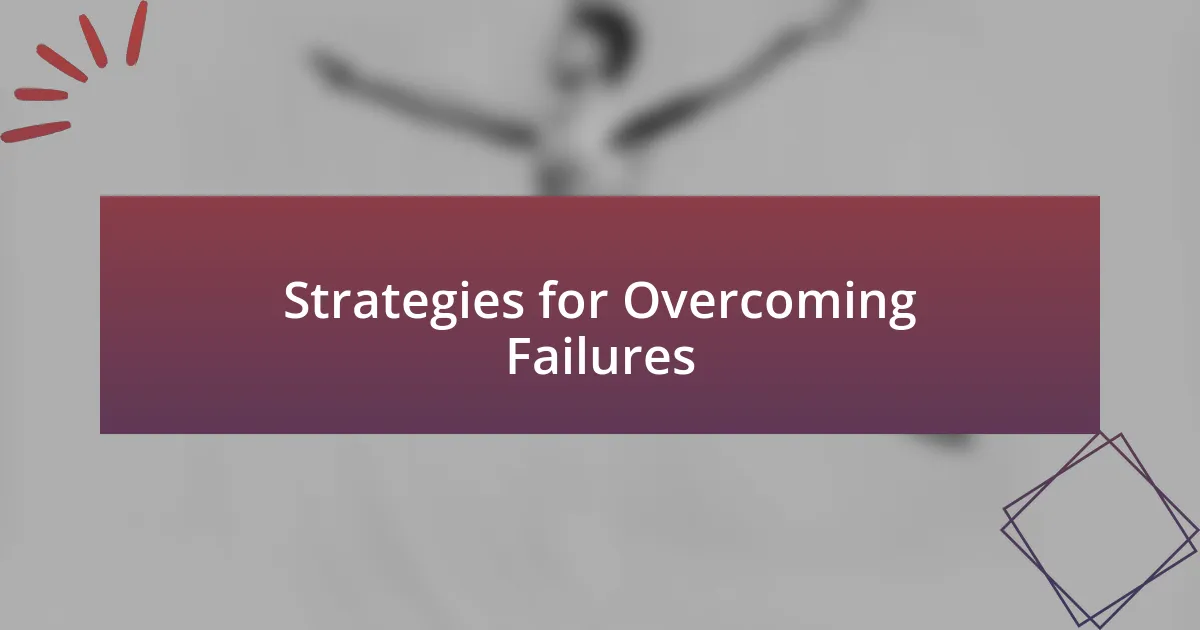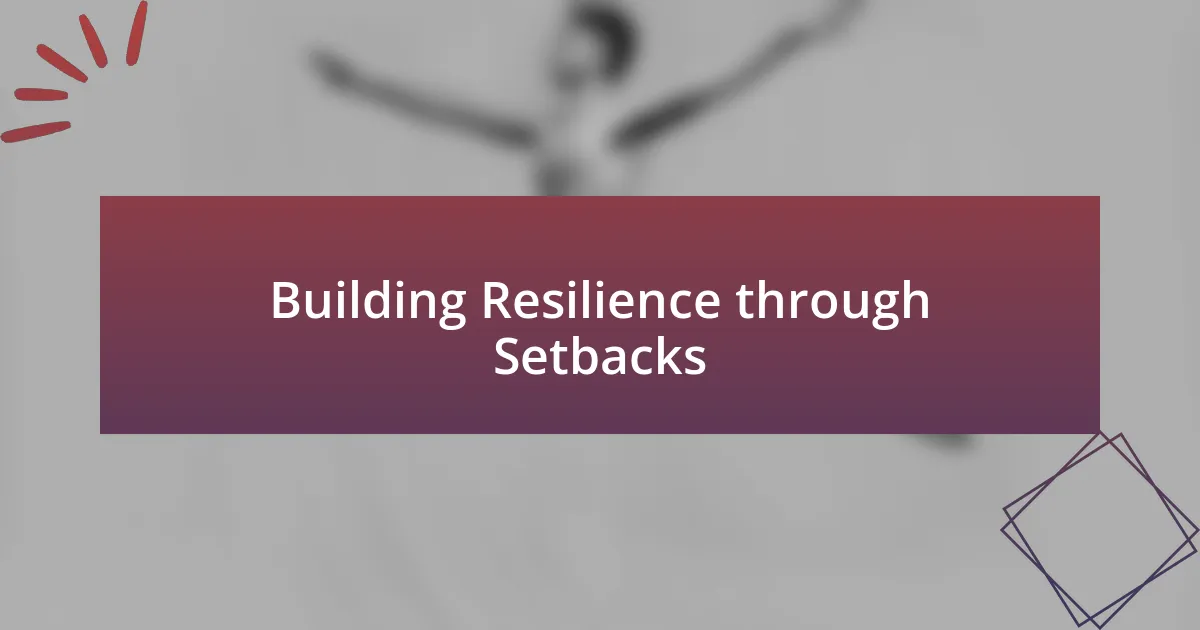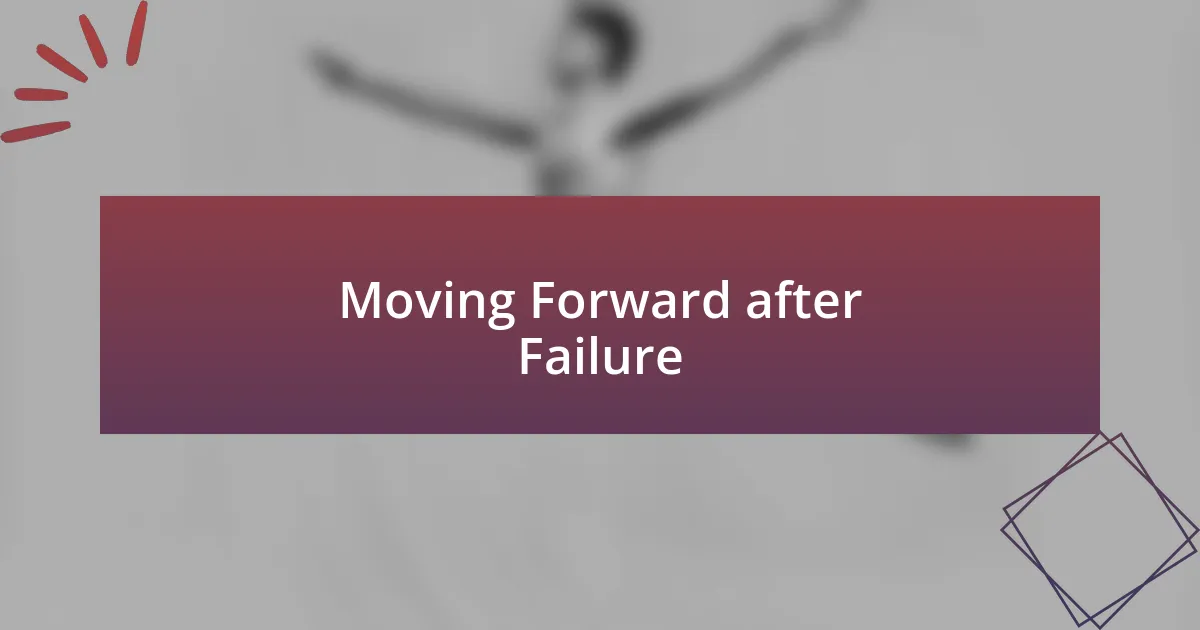Key takeaways:
- Wicket failures serve as valuable learning opportunities, urging players to analyze their mistakes and enhance their skills.
- Maintaining composure and making informed decisions under pressure are critical to avoiding unnecessary dismissals.
- Reflecting on failures and creating a plan for improvement fosters resilience and a proactive mindset for future challenges.
- Supporting teammates and sharing experiences can create a collective resilience and enhance personal growth in handling setbacks.

Understanding Wicket Failures
Wicket failures are a part of every player’s journey, often serving as unexpected teachers. I remember a match where I was confidently positioned, only to misjudge a delivery and get bowled out. The frustration was intense, but it was a moment that forced me to reflect on my technique and focus.
Understanding why wickets fall is crucial to growth. Have you ever felt that sinking feeling when a ball you expected to connect with goes wrong? Analyzing these moments allows a player to pinpoint weaknesses and integrate new strategies, turning setbacks into stepping stones.
These failures can evoke a mix of emotions, from embarrassment to determination. I’ve seen teammates brush off a wicket as just bad luck, while others stew over it, allowing it to fuel their practice. Isn’t it fascinating how our responses to these failures can shape not only our skills but also our resilience and mindset in the game?

Lessons from Personal Experience
Lessons from Personal Experience
Reflecting on my experiences, each wicket failure has provided invaluable lessons that extend beyond the game itself. I recall a particularly tough day during a crucial tournament. I was chasing a low total, and in a moment of overconfidence, I played an aggressive shot that led to my dismissal. This incident taught me the importance of patience and the need to respect the conditions, both of which have become integral parts of my approach to batting.
Another lesson revolves around the mental aspect of the game. After getting out for a golden duck once, I sat in the locker room, consumed by disappointment. It was in that silence I realized that contemplating my failures could either become an anchor or a springboard. I chose the latter, using that moment of reflection to develop a stronger, more disciplined mindset, which ultimately transformed my approach in subsequent matches.
Wicket failures are not just setbacks; they often illuminate areas ripe for improvement. I’ve learned to embrace these moments by critically analyzing each instance rather than simply accepting them as luck. For instance, one evening practice session after a particularly hard-fought game, I focused on footwork drills to address the issues that contributed to my recent dismissals. This proactive approach made a significant difference in my performance, highlighting that taking ownership of my failures can lead to greater success on the field.
| Wicket Failure | Lesson Learned |
|---|---|
| Overconfidence in Shot Selection | Importance of Patience |
| Mental Breakdown after Dismissal | Emotional Resilience |
| Reflecting on Failures | Taking Ownership and Improvement |

Key Reasons for Wicket Failures
Wicket failures can often be traced back to a few key reasons. In my experience, one prevalent cause is poor decision-making under pressure. There have been moments when I let the excitement of the game cloud my judgment. For instance, during a tight match, I attempted an ambitious shot that wasn’t warranted by the situation. This impulse decision not only cost me my wicket but also put my team in a precarious position. It became clear to me that maintaining composure is essential, especially in high-stakes scenarios.
Some of the biggest contributors to wicket failures include:
- Poor Shot Selection: Playing the wrong shot at the wrong time can lead to easy dismissals.
- Lack of Focus: Losing concentration, especially when runs are easy, can result in careless errors.
- Underestimating the Bowlers: Ignoring a bowler’s strengths or recent form can lead to unexpected dismissals.
- Inadequate Preparation: Failing to adapt to pitch conditions or the bowler’s tactics can severely impact your performance.
- Mental Fatigue: Being mentally exhausted can cause lapses in concentration, increasing the chances of mistakes.
Reflecting on these reasons has proven invaluable. I remember a game where I underestimated an up-and-coming bowler. He dispatched me with a well-executed delivery that I misread completely. This realization pushed me to commit to thorough preparation for every match, recognizing that every player brings unique challenges. A sharpened focus not only increases chances of success, but also enhances enjoyment of the game.

Strategies for Overcoming Failures
Finding ways to overcome failures isn’t just about the tactics you apply on the field; it begins with a mindset shift. I’ve learned that reflecting on my experiences plays a crucial role. After one frustrating match, where I kept repeating the same mistakes, I took a step back and analyzed what went wrong. Instead of berating myself, I asked, “What can I learn from this?” This simple question opened the door to understanding my weaknesses and turning them into strengths.
Another effective strategy is creating a routine that nurtures concentration and confidence. I remember introducing a pre-game ritual where I visualized successful scenarios. This helped me mentally prepare for any situation. The act of envisioning positive outcomes helped reduce my anxiety during matches. I often wonder, how many players shortchange themselves by skipping the mental preparation aspect? By making visualization a part of my preparation, I found that I could handle pressure more effectively and maintained a clearer head during critical moments.
Lastly, surrounding myself with a supportive team has been instrumental in navigating failure. Conversations with teammates who share similar frustrations open up avenues for growth. After one tough break, discussing my errors openly made me feel less isolated in my struggles. It reminded me that everyone deals with setbacks. So, I ask you: how often do you lean on your team for support? Recognizing that failure is a collective experience can foster resilience, making it easier to rebound and tackle future challenges with renewed vigor.

Building Resilience through Setbacks
Building resilience through setbacks is a profound journey I’ve found myself on countless times. I remember one match where I faced significant failure; the embarrassment was real, but in that moment, I discovered an unexpected strength. Instead of letting that defeat consume me, I decided to channel my frustration into a commitment to improve. I made it a point to dissect that experience meticulously. What did I learn? Embracing those setbacks allowed me to form a stronger foundation for my future efforts.
There was another occasion when I stood at the crossroads after failing to perform as expected. While initially it stung, I realized that sitting in discomfort was part of the process. Allowing myself to feel the disappointment nudged me toward growth. It raised an essential question: how often do we truly allow ourselves to feel and reflect on our failures instead of brushing them off? I found that sitting with those feelings ultimately fueled my drive to grow, enabling me to face similar challenges with a newfound sense of determination.
Whenever I faced a colossal setback, I sought the lessons hidden beneath the surface. I often asked myself, “What is this experience trying to teach me?” I recall a moment of despair when I failed to reach the goal I had set. Instead of retreating into negativity, I immersed myself in learning, reaching out for feedback, and turning that sorrow into actionable insights. That proactive stance not only bolstered my resilience but transformed the setbacks into stepping stones for my personal growth journey.

Analyzing Wicket Failure Case Studies
Analyzing specific wicket failures has been instrumental in my understanding of the game. For instance, there was a time when I misjudged a critical delivery, leading to an early dismissal. I sat down afterward, dissecting the moment. What went wrong? My footwork was off, and I realized that underestimating a bowler can lead to dire consequences. Reflecting on that incident not only deepened my technical skills but also taught me to stay grounded under pressure.
Another case that stands out to me involved a match on a damp pitch where I lost my wicket to a simple catch. It was disheartening, and I found myself questioning my decision-making. Why didn’t I assess the conditions better? That moment sparked a deeper curiosity in me about pitch behavior and how it can influence my batting style. I began analyzing past matches, collaborating with teammates, and ultimately developed a strategy to adapt better to challenging scenarios.
Then there was the day I played against a particularly fast bowler. I was keen to impress but ended up getting out in a way I hadn’t anticipated. Instead of carrying that disappointment, I sought feedback from my coach. What did he see that I missed? The insights he shared on handling pace bowling were transformative, pushing me not only to adapt but also to embrace the learning process. Analyzing failures like these can illuminate areas for improvement, turning initial frustrations into future success stories.

Moving Forward after Failure
After experiencing a wicket failure, the immediate impulse is often to dwell on the mistake. I remember a match where I was caught off a top edge, and the feeling of frustration was overwhelming. But then, I asked myself, “What can I learn from this moment?” This shift in perspective allowed me to refocus my energy on improvement instead of regret.
As I navigated through my emotions post-failure, I realized that it’s essential to create a plan for moving forward. After one disappointing dismissal, I made it a habit to write down my thoughts and feelings in a journal, identifying specific aspects of my game to work on. This practice not only clarified my goals but also gave me a sense of control, turning a negative experience into a blueprint for growth. Have you ever considered how such reflections can transform your approach to failure?
Building resilience is an integral part of moving on after a setback. There were days when I felt I would never recover from a bad performance. Yet, I discovered that discussing my experiences with teammates fostered a supportive environment that made bouncing back easier. Finding that camaraderie has taught me the value of connection; after all, sharing our struggles can often lead to shared solutions, propelling everyone forward.



